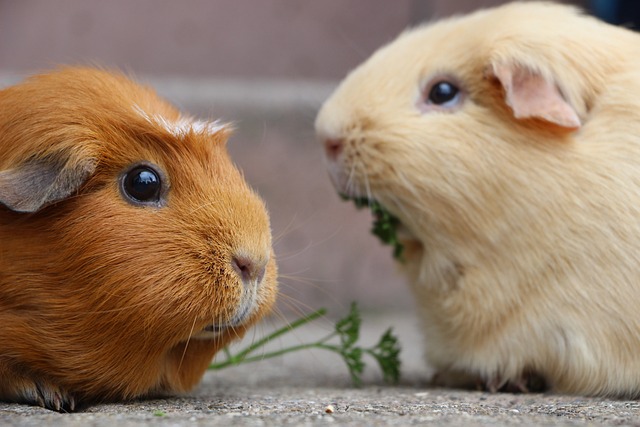The Nutritional Value of Guinea Pigs: A Guide to the Best Fruits and Vegetables
Guinea pigs are social, intelligent, and beloved pets that require a balanced diet to maintain their overall health and well-being. A variety of fruits and vegetables can be added to their regular diet to provide essential nutrients, vitamins, and minerals. However, not all fruits and vegetables are created equal, and some may even be toxic to guinea pigs. In this article, we will explore the best fruits and vegetables for guinea pigs and provide guidance on how to introduce them into your pet’s diet.
Key point: Guinea pigs have a unique digestive system that is designed to break down high-fiber foods. A diet rich in fiber can help support healthy gut bacteria and prevent digestive issues such as constipation and diarrhea.
Leafy Greens
Leafy greens are an excellent source of fiber, vitamins, and minerals for guinea pigs. These include:
- Dandelion leaves: rich in vitamins A and C, potassium, and iron
- Mild lettuce (not iceberg): a good source of vitamin K and folate
- Kale: packed with vitamins A, C, and K, as well as minerals like calcium and potassium
- Spinach: rich in iron, calcium, and vitamins A and K
- Collard greens: a good source of vitamin K and folate
Fresh Fruits
Fresh fruits can provide essential vitamins, minerals, and antioxidants for guinea pigs. Some safe options include:
- Apples: rich in fiber, vitamins A and C, and potassium (remove seeds and core)
- Bananas: a good source of potassium, vitamins C and B6, and fiber
- Peaches: packed with vitamins A and C, potassium, and fiber (remove pit and skin)
- Pineapple: rich in vitamin C, manganese, and fiber
- Blueberries: a good source of antioxidants, vitamins C and K, and manganese
Sunflower Seeds and Pumpkin Seeds
Sunflower seeds and pumpkin seeds are excellent sources of healthy fats, protein, and fiber for guinea pigs. These can be given in moderation due to their high calorie content.
- Sunflower seeds: rich in healthy fats, protein, and vitamin E
- Pumpkin seeds: a good source of healthy fats, protein, and magnesium
Foods to Avoid
There are several foods that can be toxic or cause digestive issues for guinea pigs. These include:
- Cheese: high in fat and protein, which can lead to obesity and dental problems
- Dairy products: contain lactose, which can cause digestive issues
- Chocolate: contains theobromine, which is toxic to guinea pigs
- Onions and garlic: contain a compound that can damage red blood cells
- Coffee and tea: contain caffeine, which can be toxic to guinea pigs
- Xylitol: a sugar substitute commonly used in sugar-free products, which can cause liver failure
Introducing New Foods into Your Guinea Pig’s Diet
To ensure your guinea pig is getting the nutrients they need, introduce new foods gradually and in small amounts. Start by offering a small amount of the new food alongside their regular diet, then gradually increase the proportion over several days.
Conclusion
In conclusion, providing your guinea pig with a balanced and varied diet that includes fruits and vegetables can help support their overall health and well-being. By choosing the right foods and introducing them into their diet gradually, you can ensure your pet is getting all the necessary nutrients for optimal health.
Tags:
#guineapigcare
#felinehealth
#petnutrition
#dentalhealth
#foodforpets

